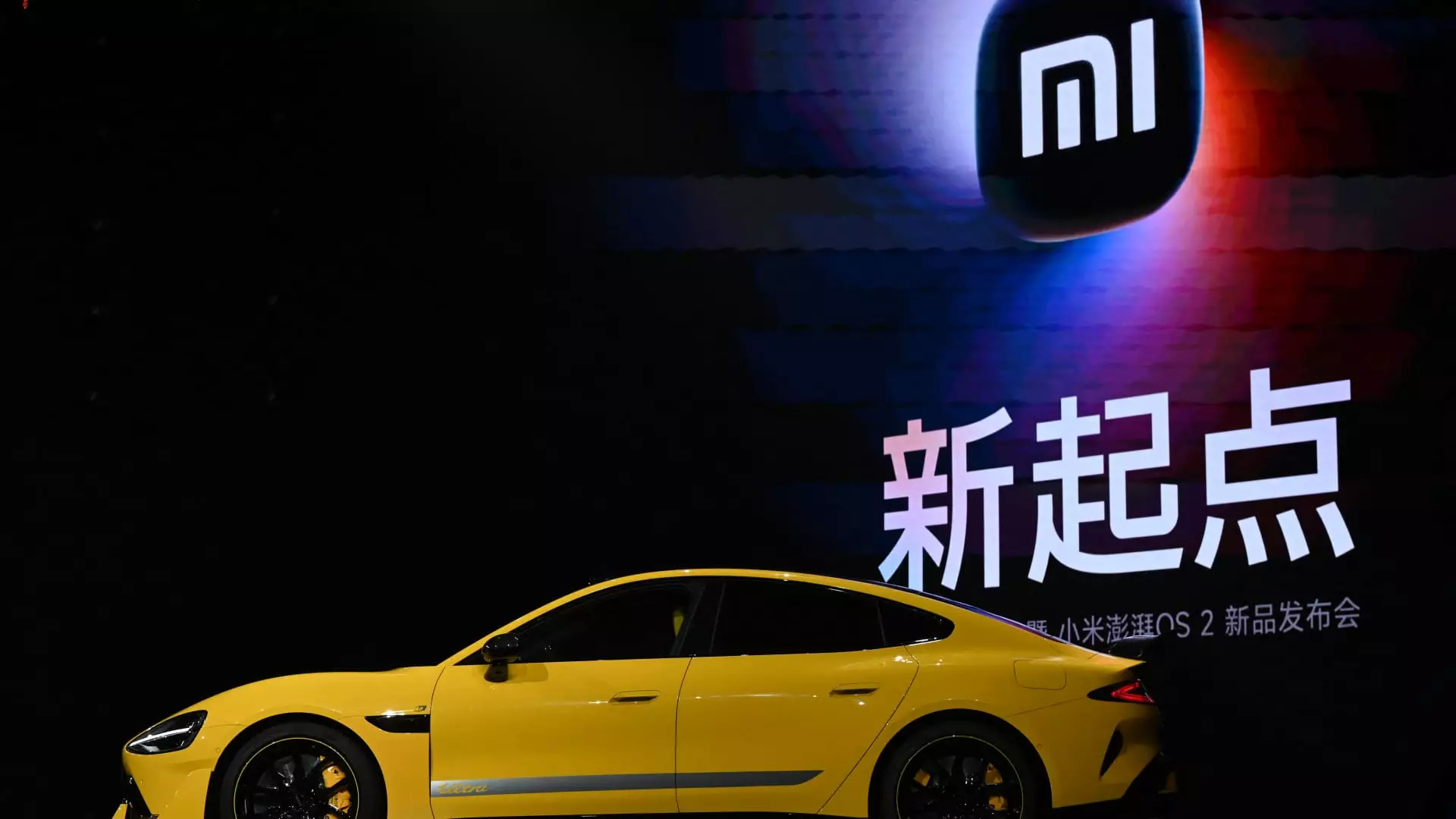In recent times, the automotive industry has seen a significant shift towards electric vehicles (EVs), with numerous companies vying for dominance in this evolving market. Among them, Xiaomi, a brand better known for its smartphones and consumer electronics, is making noteworthy strides in the electric vehicle sector. October 2023 marked a pivotal month for the company as it announced remarkable sales figures for its SU7 electric vehicle, highlighting its ambitious production plans against the backdrop of a highly competitive landscape.
Xiaomi revealed that it delivered over 20,000 SU7 vehicles in October alone, indicating its robust capability to scale production swiftly. The company aims to deliver a total of 100,000 units by the end of November, showcasing its aggressive growth strategy in a market dominated by established players. With this achievement, Xiaomi has now delivered approximately 75,000 SU7 cars overall, a hefty number when compared to competitors like Xpeng and Nio, who took years to reach similar figures. Their progress indicates a unique ability to penetrate the EV market more rapidly than many traditional auto manufacturers.
Comparatively, competitors such as Xpeng and Nio have taken considerable time to achieve milestone production numbers. While Xpeng recently recorded a monthly delivery high, much of their success stemmed from the launch of a lower-priced brand. Xiaomi’s fast-tracked production capability raises questions about the strategies employed by legacy auto manufacturers and their ability to adapt to new market realities.
One of Xiaomi’s noteworthy strategies is its pricing model. The SU7 was introduced at a base price significantly lower than Tesla’s Model 3, which resonated well in a market that increasingly favors affordability. Despite Tesla’s quick price adjustments and competitive offerings, Xiaomi’s approach has showcased its commitment to providing value and attracting a diverse consumer base. This pricing tactic not only opens up opportunities within the local market but also positions Xiaomi favorably for international expansion, even as they currently focus on China.
The company recently announced preorders for the higher-end SU7 Ultra, which is set to elevate their product line. The enthusiasm around this model was palpable as they registered over 3,600 preorders shortly after availability, each requiring substantial deposits. This rush suggests that there is a growing appetite for more premium offerings, further solidifying Xiaomi’s intent to diversify its EV portfolio.
Market analysts have pinpointed Xiaomi as a formidable contender in the electric vehicle arena. With the company’s gross profit margins reportedly aligning with those of Xpeng in August, this competitive positioning reveals their operational efficiency and strategic planning. Brian Tycangco from Stansberry Research noted that Xiaomi’s recent triumphs validate its status as a serious player in the world’s largest EV market, particularly complimented by their rapid delivery rates.
Citi analysts have revised their projections for Xiaomi’s performance, anticipating substantial deliveries in the upcoming year. This optimistic outlook from industry experts serves as evidence of Xiaomi’s potential not only in car manufacturing but also in maintaining a strong foothold in the EV landscape.
While Xiaomi’s foray into electric vehicles shows great promise, it is also essential to recognize the challenges that lie ahead. The EV market is characterized by its rapid innovation cycles and intense competition that requires continual adaptation. Moreover, the brand’s present focus is on the Chinese market, with plans for international expansion still a few years away. This delay may affect their long-term growth, as other companies are already making strides internationally.
Furthermore, as companies like Tesla, Xpeng, and Nio continue to innovate and evolve, Xiaomi must stay ahead in terms of technology and customer satisfaction. On top of introducing new models, strategic alliances, and investments in research and development will be crucial for them to maintain momentum.
Xiaomi’s entrance into the electric vehicle space is marked by impressive sales, a strong pricing strategy, and optimistic market forecasts. However, the company must navigate the fast-paced automotive landscape and address lingering challenges to truly capitalize on its potential. As the world moves towards an increasingly electric future, Xiaomi’s journey is one to watch.

